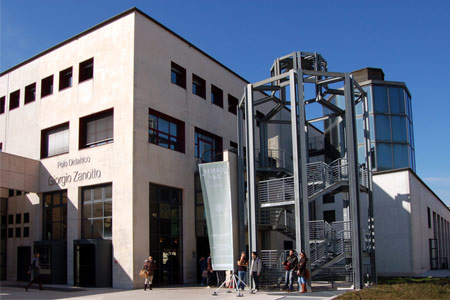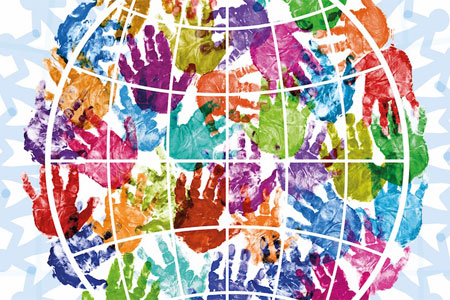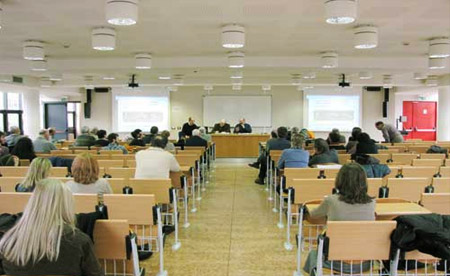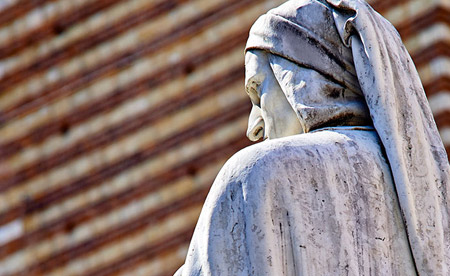The Cartography laboratory represents one of the university’s most important technical and academic facilities for researching and teaching in the field of geography. Maps are a form of specialised language, but they are universal and transversal across disciplines (from history to archaeology, from geography to urban studies and from local planning to teaching), as well as a model of reality and a form of power. Each year the laboratory provides theoretical and practical courses on ancient and modern cartography to complement other courses. Its activities include supporting academic research, university and post-university teaching; producing studies, research and services in order to develop innovative knowledge and technology in the fields of cartography, geodesy, applied topography and local information systems; promoting research, conventions and seminars; producing small and large scale maps, themed atlases and geocartographic exhibitions; organising academic events to spread the importance and knowledge of cartographic documentation and tools as a way to interpret territorial reality and plan events; and collecting documentary materials related to Italian and foreign cartography, topography and iconography.
The non-invasive analysis laboratory for works of art is a very significant and original initiative with hi-tech instrumentations (used for non-invasive diagnosis and for specific problems relative to studying artistic execution methods) all concentrated in a single research laboratory or institute in order to guarantee optimum management of the entire diagnosis process, beginning from the production and reading of the data, through to processing the analyses and final information.
The instrumentation that belongs to the laboratory provides an operational centre for carrying out macrophotography and reflectography on works of art (for example, using a reflectograph in the nearby research institute, a spectrometer that operatres between 200 and 1000 nm for the reflectance spectrometry, other useful material for UV fluorescent analysis, photgraphy and macrophotography), then processing all the data in the computer. Furthermore, spectroscopic instrumentation is extremely easy to handle and carry around, and is highly appreciated for specific analysis on industrial items, involving the study of metal alloys, ceramic materials, powders, liquids and textiles, not only with regard to their composition but also from a colorimetric point of view.
In particular, the laboratory research provides various study and execution methods:
- application of applied physics to various sectors, using the following techniques: X-ray spectrometer, Raman spectrometer, UV-vis, -NIR reflectance spectrometers, colorimetry, infrared optics. The aim of this activity is to study the physical processes involved in the various techniques used in relation to the interaction of radiation with different materials: pictorial layers, textiles, metals, plastics, etc:
- Analysis for studying public or private works of art that are particularly interesting for certain conventions or agreements, on payment or free of charge (depending on the project), with special attention paid to local works (museums, churches, collections, etc.).
- Setting up a database archive for each type of analysis, to have significant comparative data available.
- Working with the "laboratory and applied training period" activities in the Master in diagnositics and conservation of paintings c/o the Faculty of Letters and Fine Arts.
- Publication of the most significant analysis results.
- Participation in congresses on physics applied to the study of Italian fine arts (including the National Congress of the Italian Association of Archaeometry, AIAr) and international congresses, publications in category magazines (Studies in Conservation Archaeometry, etc.).
- Participation in Italian and International History of Art Conventions.
- Environmental diagnostics actions (pollutants, elementary characterisation and characterisation of chemical species) for third parties using XRF analysis and portable Raman spectrometers.
Given the nature of the laboratory activities, agreements will also be set up in cooperation with the Faculty of Science at Verona University.
The quality of the laboratory activities will be monitored by a commission of referees.
Instruments:
Portable Minolta Spectrophotometer
Infrared camera and IR filters
Reflex Nikon camera and lens bench for micro and macrophotography.
Telecamera with InGaAs FPA detector: XenICs (for IR reflectography)
Radiographic tube
Portable spectrometer (for X-ray spectrometry)
FTIR portable spectrometer with optic fibres (for FTIR infrared spectrometry)
Portable spectrophotometer (for colorimetry)







